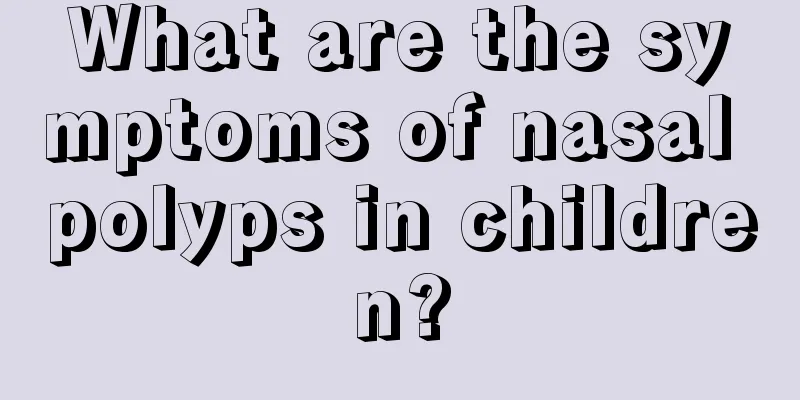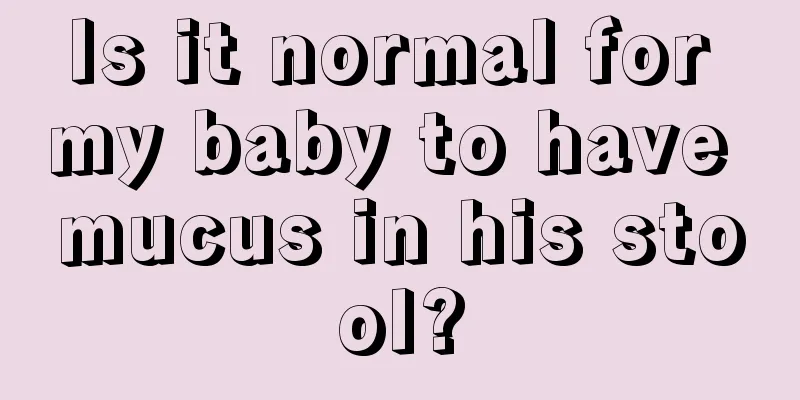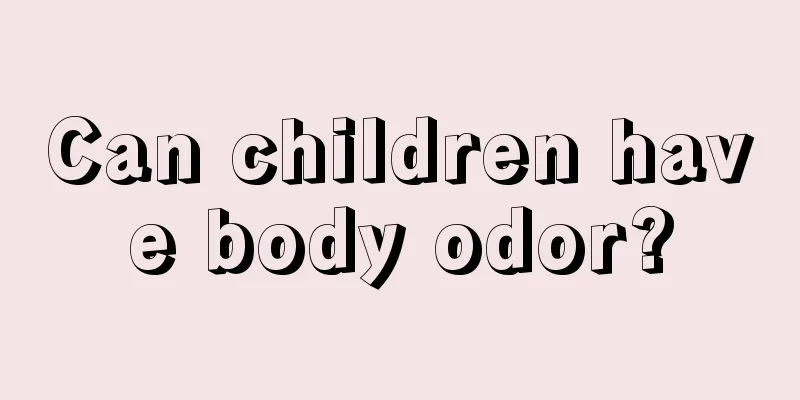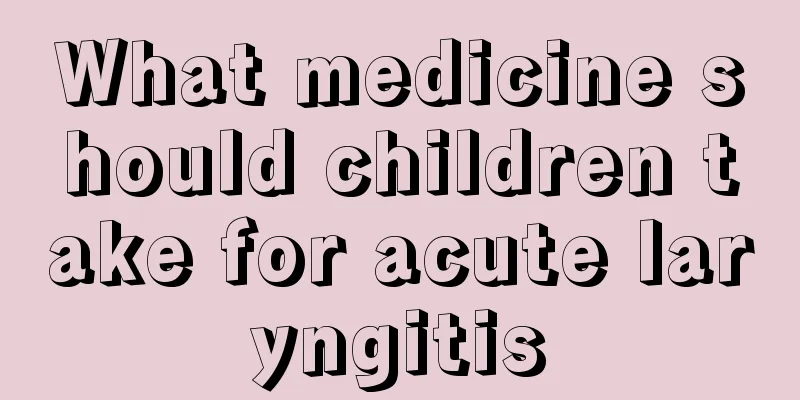What are the symptoms of nasal polyps in children?

|
Nasal polyps can occur not only in adults, but also in many children. However, because parents do not have enough knowledge about nasal polyps, it is easy to ignore them in the early stages of the disease in children and treat them as colds. So by doing this it is easy to miss the best time for treatment. Today, I will talk about the symptoms of nasal polyps in children. Parents who are interested can learn with me! Common symptoms and complications include: 1) Nasal congestion: Nasal congestion, poor nasal airflow, nasal sounds when speaking, and snoring during sleep are the most common symptoms of nasal polyps in children. initial symptoms. If children have long-term nasal congestion, their sense of smell will be reduced or even disappear. When it turns into occlusive nasal sound, they will also snore, have difficulty breathing and breathe through the mouth while sleeping, which will affect their normal growth and development. 2) Increased nasal discharge: Excessive nasal discharge is also a common symptom. The secretions are sticky or mucopurulent, and the amount may vary from time to time, but it is often not clear. 3) Olfactory dysfunction: Long-term obstruction of nasal polyps affects the olfactory area of the upper nasal passages and affects the ability to sense odors. There is olfactory impairment. Some patients may experience headaches. 4) Other complications: For maxillary sinus and posterior nasal polyps that protrude into the nasopharynx, they often block the Eustachian tube and cause symptoms of secretory otitis media, hearing loss, low-frequency tinnitus, etc.; severe bilateral nasal polyps can also cause facial changes, collapse of the nasal dorsum, and the formation of a "frog nose." Patients with long-term nasal polyps may also develop asthma. Clinically, nasal polyps, asthma and aspirin intolerance are called the "triad". Nasal polyps can also cause hyperplastic sinus disease (HSD), and sinus lesions aggravate nasal symptoms. After reading the editor's description of the symptoms of nasal polyps in children, I wonder if it is helpful to parents? In fact, children are in the stage of growing up. Even if the nutrition can keep up, their resistance is still lower than that of adults, so it is very common for them to get sick. This requires parents to pay more attention to all aspects of changes in their children in life. |
<<: How to treat pneumonia in babies?
>>: What are the causes of encephalitis in children? How to treat it?
Recommend
What nuts are good for young children?
Many parents believe that nuts are good for adult...
What to eat is good for baby's skin
The baby's skin is very delicate and smooth, ...
Causes and treatments of fever and cramps in children
Many babies will experience convulsions when they...
Newborn baby has a lump in the breast? Teach you how to deal with it
Since newborns cannot communicate well, parents w...
Causes of black teeth in children
In life, many children often encounter the proble...
What can’t babies eat if they have dysentery? This knowledge must be understood
Babies are prone to dysentery. It is not a seriou...
What causes dizziness in children?
Dizziness and headache are diseases that often oc...
Can babies eat sea bass?
We know that fish are rich in nutrients, and diff...
How to treat breast development in boys
Breast development occurs in many boys. Unlike in...
Early signs of anorexia in teenagers
Anorexia is a psychological disorder in which a p...
Treatment of bronchiectasis in children
Bronchiectasis in children makes many mothers ver...
What is the cause of the child's crooked teeth?
Many children have crooked teeth. Parents are wor...
Why does my child keep having a dry cough?
Children are the group most prone to coughing. So...
What is the best treatment for bronchitis in children?
Childhood bronchitis is very common in life, but ...
What to do if your child is allergic to shrimp
In our lives, due to some external reasons and ou...









